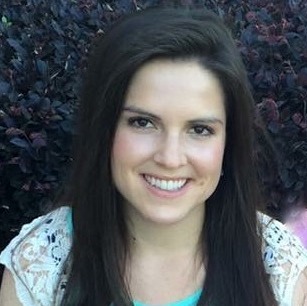
Diabetes and the “American Dream”
20 Feb 2017, 10:31 a.m. in #insulin4all USA, Global Stories by Karyn Wofford
I was diagnosed with type 1 diabetes when I was 12. My mom noticed I had lost an extreme amount of weight after three days at summer camp. She had my uncle, a type 2 diabetic, test my blood sugar like he had many times before because of my fascination with medical equipment. This time, something was wrong. The meter read 400mg/dl. My uncle could not believe it, as he didn’t have much knowledge of type 1 and had never seen his levels climb out of the 200’s. He checked again, with it then reading in the 500s. He checked his own to be sure the meter was correct; his sugar was in the mid 100s, so the meter seemed accurate. I was a really healthy kid, but we know that doesn’t matter, because type 1 diabetes can strike the healthiest of people.
My teen years were rough, I did not take care of myself. Now, I thoroughly regret that, because I remember how hard my parents tried, and how financially strained my dad was from buying supplies and paying for hospital visits. A Diabetic Ketoacidosis (DKA) episode that nearly cost me my life was my long overdue wake-up call. Nearly unconscious, I remember the nurses scrambling around my bed, saying I was breathing irregularly. Then they inserted an arterial line in my arm because I was too dehydrated; my veins could not be accessed for an IV.
My early struggles have contributed to my passion for advocating for those with diabetes. After graduating high school, I went on to be an Emergency Medical Technician (EMT), a career that paid tribute to those who saved my life so many times. However, my time as an EMT was short lived. I struggled from the emotional pain that came along with losing people. I knew I would lose patients, but I wasn’t prepared for how difficult it could truly be. My deepest respects go to individuals who can deal with that kind of pain on a daily basis. My brother is one of those people.
While practicing, I bonded with many diabetics who would come into the ER. My story seemed to help some, and because of that I’ll never wish I had not spent that time as an EMT. It was an important part of developing who I am.
I went on to obtain a certification as a wellness specialist and started my writing career. A large focus of my career has been raising awareness about diabetes and the necessity of care. While I fight hard for type 1’s and 2s, I also push for acknowledgment of the immense difference of these two very different diseases. Misconceptions often take the importance away from the essential supplies, such as insulin, that type 1’s need to survive.
There are days that I ration my insulin, because I just cannot afford the high price tag. I’ve used expired insulin, and I’ve come on and off helpful medications like Symlin, a fairly new drug that mimics another important hormone diabetics lack. My numbers seem to be perpetually in the upper 200s to 300s, if not worse, except when I have access to Symlin, and the proper amount of insulin.
In the US, insurance premiums and deductibles are staggering. Middle class people fall into a hole of not qualifying for any assistance programs, but still don’t have enough money to buy life-saving medications. Most doctors won’t take my insurance, leaving me without proper guidance and care.
I’m a hard working individual with a reasonably decent job, which at one time was called the “American Dream”. The American Dream no longer exists, especially for those with chronic illnesses like diabetes. Our dream is to make it above middle age, to keep our vision, and to not feel like we’ve been hit by a train everyday due to excessively high blood sugar levels. My dream no longer consists of owning a home, having children or growing old. Having access to diabetic supplies and insulin, to feel okay when I wake up in the morning - that’s my dream for me and every other diabetic.

Karyn is a wellness writer, diabetes advocate and type 1 diabetic. For 15 years she's lived with the disease, and now dedicates her life to raising awareness.













